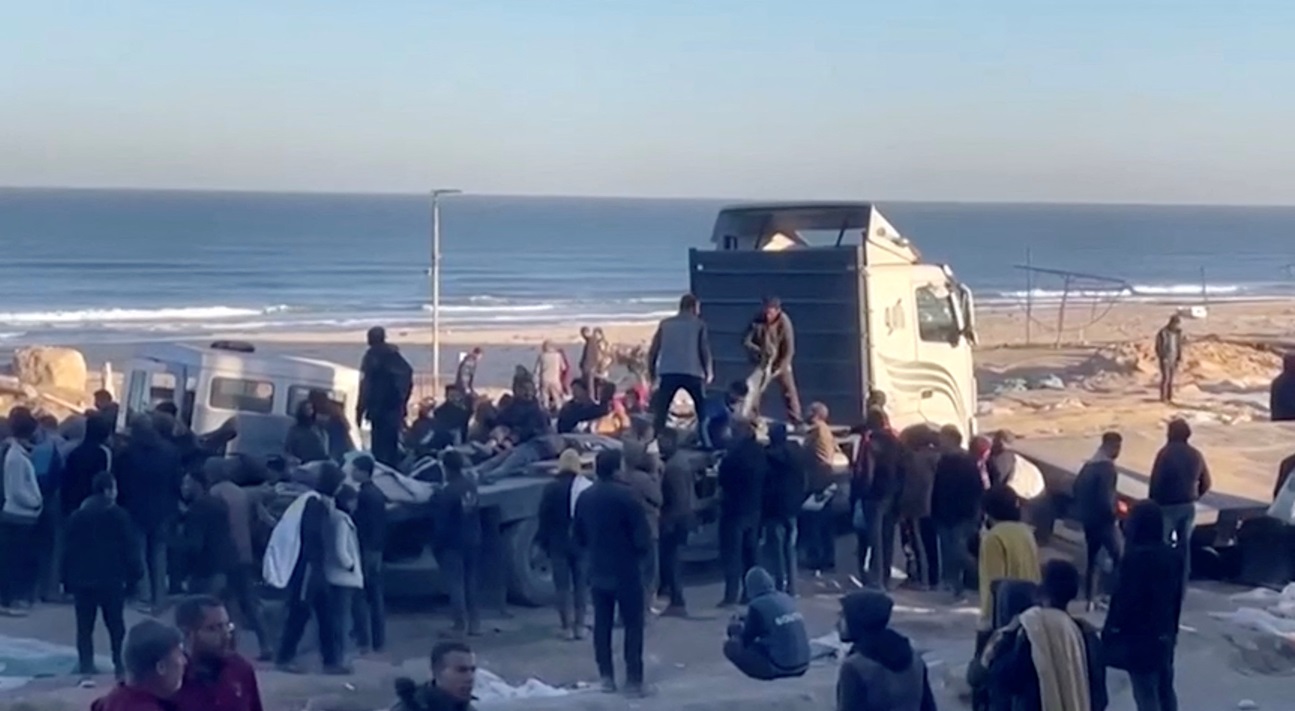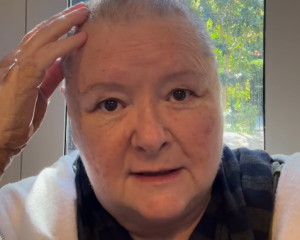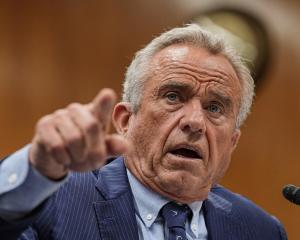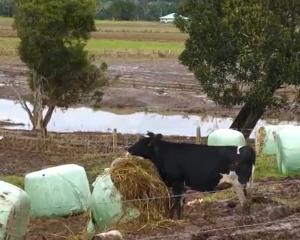
At least 112 people were killed and more than 280 wounded in the incident near Gaza City, Palestinian health officials said, as the death toll in nearly five months of war passed 30,000.
Medics said they could not cope with the volume and severity of the injuries. Dozens were taken to Al-Shifa Hospital, which is only partially operational after Israeli raids.
Hamas said the incident could jeopardise talks in Qatar aimed at securing a ceasefire and the release of Israeli hostages it is holding, while US President Joe Biden, when asked if he thought it would complicate the talks said, "I know it will."
The White House said Biden discussed the "tragic and alarming incident" with the leaders of Egypt and Qatar, as well as ways to secure the release of Hamas hostages and a six-week ceasefire.
The US is urgently seeking information on what took place, the State Department said, adding Washington will push for answers from Israel which said it is investigating.
The loss of civilian lives was the biggest in weeks. Palestinian President Mahmoud Abbas said it was an "ugly massacre conducted by the Israeli occupation army on people who waited for aid trucks at the Nabulsi roundabout".
The UN condemned the deaths and injuries. It said it had it had not been able to deliver supplies to Gaza's north in more than a week and was not involved in the distribution.
Israel disputed the account provided by health officials in Hamas-run Gaza, which has been bombarded by Israeli forces for months in a war that began after the Palestinian militant group's deadly rampage in southern Israel on October 7.
An Israeli military official said two separate incidents occurred as the convoy of trucks passed into northern Gaza from the south along the main coastal road.
In the first, he said aid trucks were surrounded by hundreds of people and, in the confusion, dozens were injured or killed, by being trampled or run over.
As the trucks left, he said, some of those who had rushed the convoy approached Israeli forces including a tank, which then opened fire.
"The soldiers fired warning shots in the air and then fired towards those who posed a threat and did not move away," he told journalists. "This is what we understand. We're continuing to review the circumstances."
He said he did not believe the death toll from Palestinian authorities but provided no Israeli estimate, saying: "It was a limited response."
'AID AND BULLETS'
Ashraf Al-Qidra, spokesperson for the Gaza health ministry, said the comments showed Israel "had pre-plotted intentions to carry out the new crime and massacre", and that the death toll could rise.
One video shared on social media, whose location Reuters was able to verify, showed trucks loaded with many dead bodies as well as wounded people.
Another, which Reuters could not verify, showed bloodstained people being carried in a truck, bodies wrapped in shrouds and doctors treating injured patients on the hospital floor.
"We don't want aid like this. We don't want aid and bullets together. There are many martyrs," a man said in one of the videos.
US Defense Secretary Lloyd Austin told a congressional hearing that more than 25,000 women and children had been killed by Israel in Gaza since Oct. 7, and that it could and should do more to protect civilians.
In a post on X, UN aid chief Martin Griffiths said he was "appalled", adding: "Even after close to five months of brutal hostilities, Gaza still has the ability to shock us."
PALESTINIAN DEATH TOLL TOPS 30,000
The Palestinian health authorities said 30,035 Palestinians were now confirmed killed and more than 70,000 wounded in Israel's offensive, launched after the October 7 attack in which Israel said Hamas gunmen killed 1200 people and abducted 253.
Much of Gaza has been reduced to rubble and the majority of its 2.3 million population displaced from their homes at least once.
Aid deliveries to northern Gaza have been rare and chaotic, passing through more active military zones to an area where the UN says many people are starving, with videos showing desperate crowds surging around supply trucks.
UN and other relief agencies have complained that Israel has blocked or restricted their attempts to get aid to the area.
Philippe Lazzarini, head of the UN Palestinian aid agency UNRWA, told reporters in Jerusalem that the supply of aid into Gaza as a whole had halved since January.
He described Thursday as "another day from hell," and asked, "when will this madness end?"
Gaza's uniformed municipal police were refusing to accompany aid convoys because several had been killed by Israeli strikes.
Israel has denied restricting humanitarian aid and has blamed the UN for failures to deliver supplies.












